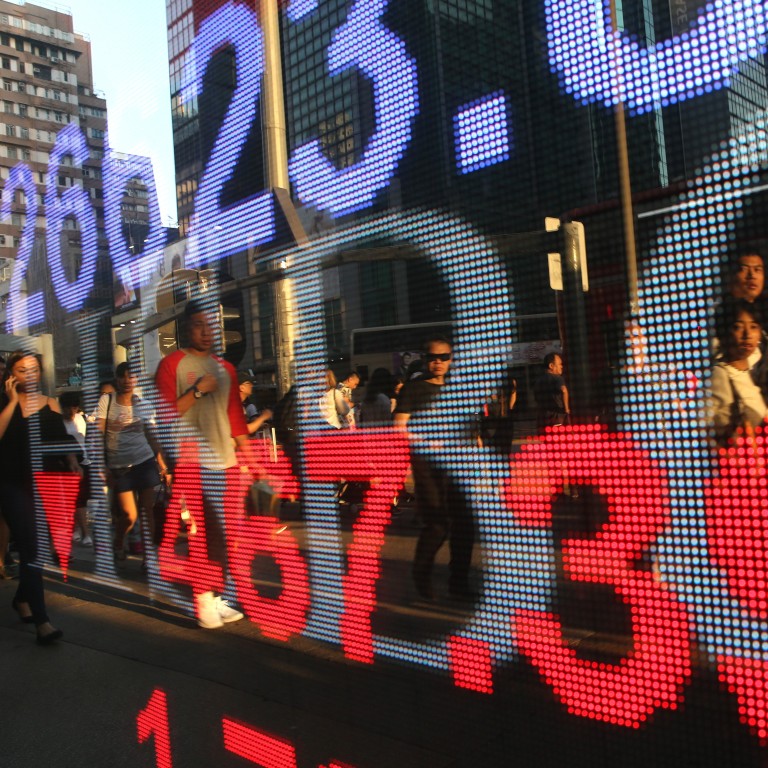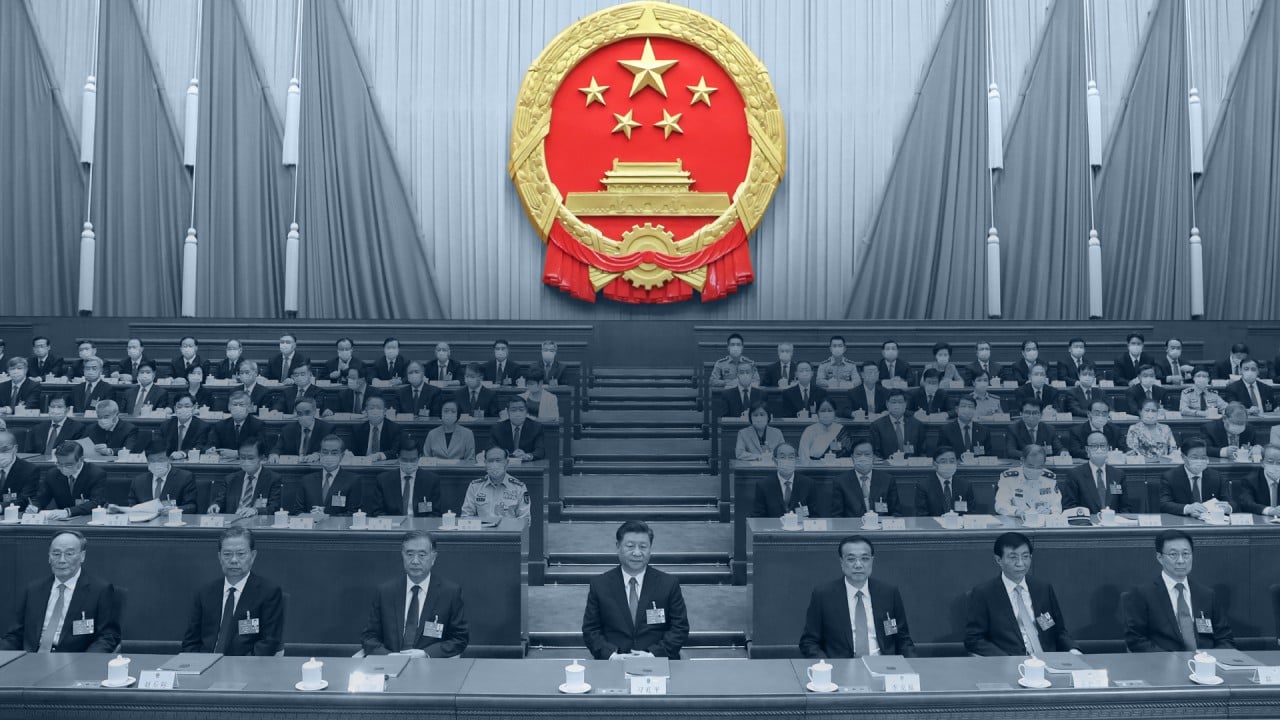
Hong Kong, China stocks slump on bubble, taper risks as bond market tumult triggers broad sell-off
- A jump in US government bond yields sends equities lower with traders jittery on valuation, inflation, policy risks
- ‘Taper tantrum’ risks have pushed local market volatility to the highest level since July while mainland funds withdraw
Mainland traders sold HK$4.3 billion (US$558 million) of the city’s stocks through the exchange link on Thursday for a second time of net selling this week, according to Bloomberg data.
Technology stocks topped the list of decliners in Hong Kong, with the Hang Seng Tech Index plunging 5.8 per cent. Kweichow Moutai, one of the most concentrated bets held by onshore money managers, sank the most in a week in Shanghai. The ChiNext gauge of small-caps in Shenzhen, which is four times as expensive as the mainland’s benchmark, toppled 4.9 per cent.
“It’s better to seek the safe hedge on the macro backdrop that the recovery is uneven, real inflation looms large and liquidity will eventually be tightened,” said Cheng Shi, chief economist at ICBC International.
Markets in Asia-Pacific fell across the board on Thursday, with stock gauges from Australia to Japan and South Korea losing by 0.8 per cent to 2 per cent. The Nasdaq 100 retreated to a two-month low in overnight US trading after yields on Treasuries jumped. Inflation expectations over the next five years rose to the highest level since 2008.

03:42
SCMP Explains: The ‘two sessions’ – China’s most important political meetings of the year
“The market focus remains worryingly on higher interest rates, a by-product of market-based inflation expectations, as well as the throughput effect into the heavily owned tech sector, where alarm bells are sounding amid lofty valuations,” said Stephen Innes, a strategist at Axicorp.
Some 35 out of the 52 members on the Hang Seng Index fell on Thursday, as WuXi Biologics, Meituan and Sunny Optical Technology paced the worst performers with more than 6 per cent losses.
Tencent Holdings, the Chinese social-media giant, dropped 4.6 per cent to HK$690 and smartphone maker Xiaomi lost 4 per cent to HK$25.40.
On the mainland, Kweichow Moutai, the world’s most valuable liquor distiller, shed 5 per cent to 2,033 yuan. Contemporary Amperex Technology, the maker of lithium batteries and also the biggest weighing on the ChiNext index, tumbled 6.9 per cent to 325.57 yuan.

